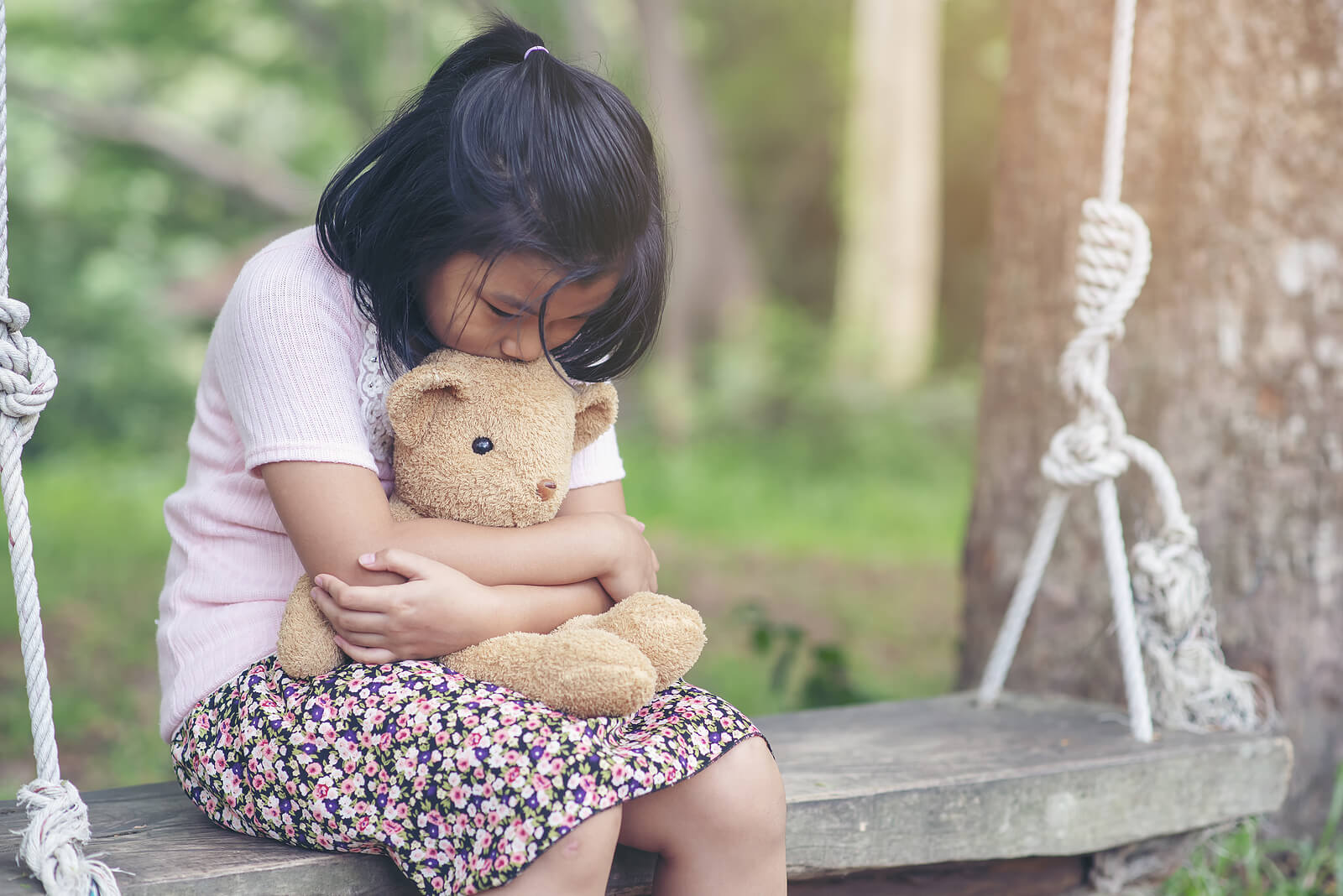Timing Matters in Therapy for Children
As a parent or caregiver, you know your child better than anyone. You celebrate their milestones, comfort them in moments of distress, and support them through life’s ups and downs. But when emotions run deeper, behaviors change suddenly, or trauma strikes, how do you know when your child needs more than love and reassurance? When is it time to seek professional help?
At DBT of South Jersey, we specialize in therapy for children and adolescents facing emotional, behavioral, and developmental challenges. This comprehensive guide will help you recognize when your child may need therapy, how early intervention can make a meaningful difference, and what steps you can take to support your child’s well-being.

The Importance of Early Intervention
Just like with physical health, early intervention is key when it comes to a child’s emotional and mental health. When children struggle internally, those challenges often appear as shifts in behavior, mood, or daily functioning. Unfortunately, many signs of emotional distress are misinterpreted as “just a phase” or dismissed as bad behavior.
The truth is: Waiting can allow issues to become more entrenched. The earlier a child receives support from a child therapist, the easier it is to develop healthy coping skills, restore balance, and prevent deeper struggles later in life.
Therapy is not a last resort — it’s a powerful tool for growth, healing, and prevention.
When Should a Child See a Therapist?
There’s no single moment or perfect age to start therapy. But there are clear signs and life situations that suggest professional support is not only helpful — it may be necessary. Below are the key scenarios when you should seriously consider scheduling an evaluation with a child therapist.
1. After a Traumatic or Life-Altering Event
Children experience trauma differently from adults. What might seem manageable to a parent can deeply shake a child’s sense of safety and stability.
Examples of Events That May Trigger Trauma:
- Loss of a loved one (death of a parent, grandparent, or pet)
- Divorce or separation of parents
- Witnessing violence or domestic conflict
- Hospitalizations or serious medical diagnoses
- Natural disasters or house fires
- Abuse (physical, emotional, or sexual)
- Bullying or social exclusion
- Moving to a new home or school
Case Scenario:
Emma, age 9, began having stomachaches every morning before school after her parents divorced. Though she didn’t talk much about the separation, she became withdrawn at home and frequently cried at bedtime. In therapy, Emma was able to express feelings of sadness, confusion, and fear, and learn tools to cope with the changes in her family.
Why It Matters:
Unprocessed trauma can resurface later as anxiety, depression, behavioral problems, or physical symptoms. Therapy creates a safe space for children to make sense of what happened and regain a sense of control and safety.
2. When There’s a Noticeable Change in Behavior or Mood
Behavior is communication. A child who suddenly begins acting out, withdrawing, or showing emotional extremes may be signaling that they are struggling beneath the surface.
Warning Signs to Watch For:
- Increased irritability or anger outbursts
- Excessive crying, sadness, or clinginess
- Social withdrawal or isolation
- Drastic changes in sleep or appetite
- Loss of interest in previously enjoyed activities
- Regression (e.g., bedwetting, baby talk, separation anxiety)
- Frequent physical complaints with no medical explanation
Case Scenario:
Liam, age 11, once enjoyed playing soccer and video games with friends. Over a few months, his parents noticed he stopped participating in activities, started sleeping excessively, and seemed “flat” emotionally. A therapist helped identify early symptoms of depression and worked with Liam on re-engaging with his peers and rediscovering joy.
Why It Matters:
Mood and behavior changes are often the first visible signs of anxiety, depression, or other emotional challenges. These issues don’t always resolve on their own — therapy helps children process emotions, develop coping skills, and restore emotional balance.
3. When Functioning at Home or School Is Affected
Children’s mental health issues often manifest as academic problems, peer conflict, or difficulties at home. A once well-behaved or high-achieving child may begin acting out, struggling to focus, or refusing to go to school.
Red Flags in Functioning:
- Frequent disciplinary issues or suspensions
- Sudden drop in grades or loss of interest in schoolwork
- Avoidance of school or social events
- Ongoing conflict with siblings or authority figures
- Refusal to participate in daily routines
- Low motivation, disorganization, or trouble completing tasks
Case Scenario:
Sofia, age 13, was frequently sent to the principal’s office for talking back to teachers and walking out of class. She was labeled as “difficult,” but therapy revealed she was dealing with intense anxiety masked by defiance. With support, Sofia developed skills for self-regulation and was able to re-engage with school successfully.
Why It Matters:
Children who struggle to function day-to-day often feel frustrated, misunderstood, or defeated. Therapy can address the root of the issue, not just the behavior, helping kids build confidence and reconnect with their strengths.

4. When Emotions or Behaviors Are Extreme or Inappropriate for Age
All children have tantrums, fears, or emotional ups and downs. But when these emotions are extreme, persist for long periods, or seem inappropriate for your child’s developmental stage, it may indicate something more.
Concerning Patterns:
- Tantrums beyond early childhood (e.g., age 8+)
- Excessive fears or phobias (e.g., not sleeping alone at age 10)
- Intense perfectionism or fear of failure
- Overwhelming worry or panic in daily situations
- Excessive need for control or rigidity
- Risk-taking or impulsive behavior that’s unsafe
Case Scenario:
Jayden, age 7, experienced explosive tantrums that lasted over an hour, even for small frustrations like being told “no” or losing a game. His parents walked on eggshells to avoid setting him off. In therapy, Jayden was diagnosed with disruptive mood dysregulation disorder (DMDD) and began DBT-informed sessions to learn emotional regulation strategies.
Why It Matters:
Children struggling to manage their emotions may not have the tools or language to express what’s wrong. Therapy builds emotional intelligence and teaches kids how to respond rather than react.
5. When There Are Signs of Anxiety, Depression, or Self-Harm
Mental health conditions like anxiety and depression often begin in childhood or adolescence, and early signs are frequently missed or misunderstood. If left untreated, these issues can escalate into more serious challenges, including self-injury or suicidal ideation.
Signs to Watch:
- Persistent worry or panic attacks
- Extreme fear of social situations
- Hopelessness or low self-worth
- Talking about death or dying
- Self-injury (e.g., cutting, burning, scratching)
- Withdrawing from family or friends
- Refusing to talk about their feelings
Case Scenario:
Amira, age 14, started wearing long sleeves in the summer and spending hours in her room. A friend told the school counselor that Amira had been cutting herself. Her parents were devastated — they had no idea she was struggling. Therapy provided a lifeline for Amira to talk about her emotions, develop coping tools, and begin healing.
Why It Matters:
Mental health disorders are real medical conditions — not something a child can just “snap out of.” Therapy provides tools for managing symptoms, addressing root causes, and preventing future harm.
6. When You, as a Parent, Are Feeling Lost or Overwhelmed
Sometimes, it’s not the child who asks for help — it’s the parent who recognizes something isn’t right. And that’s okay. If you find yourself constantly second-guessing, arguing, or struggling to connect with your child, therapy can help you as much as it helps them.
Parental Concerns That Signal It’s Time:
- “I feel like I don’t know my child anymore.”
- “We argue constantly, and nothing I do seems to work.”
- “I’m scared my child is going down a bad path.”
- “I don’t know how to support them.”
- “Our home feels like a battlefield.”
Therapy often includes parent coaching, communication skills, and family support — helping rebuild trust, improve dynamics, and create a healthier home environment.
How Therapy for Children Can Help: What to Expect
At DBT of South Jersey, we offer a wide range of services designed specifically for children, teens, and families. Therapy is a safe, non-judgmental space for your child to express themselves, learn new skills, and grow emotionally.
Therapeutic Approaches We Use:
- Dialectical Behavior Therapy (DBT-C / DBT-A): Evidence-based therapy for emotion regulation, impulse control, and distress tolerance
- We recently developed a new program, Skills for Supersensers, which uses DBT-C to help kids with big emotions manage them more effectively, and helps parents take an active role in that healing process
- Cognitive Behavioral Therapy (CBT): Changing negative thought patterns and behaviors
- Accelerated Resolution Therapy (ART): Using bilateral stimulation to process and change problem images, sensations, and symptoms
- Family Therapy: Improving communication, structure, and emotional support
We tailor our approach based on your child’s unique needs, age, and personality. Most importantly, we work in partnership with you — the caregiver — to ensure progress continues outside the therapy room.
When in Doubt, Reach Out
Every child struggles from time to time — that’s part of growing up. But if you’re seeing persistent emotional, behavioral, or social challenges, trust your instincts. You don’t need a diagnosis or a crisis to begin therapy.
Early support builds the foundation for lifelong mental and emotional health.
Our team at DBT of South Jersey is here to help you navigate the path forward with warmth, skill, and deep care. Whether your child is facing anxiety, big emotions, social struggles, or you simply want to build their emotional resilience, we are here to walk that journey with you.
You are not alone, and your child’s well-being is worth the investment. Let’s build a better tomorrow, together.

Get the Support Your Child Needs with Therapy for Children in South Jersey
If you’re concerned about your child’s behavior, emotions, or recent changes, you’re not alone — and help is available. DBT of South Jersey offers specialized support to help children navigate big feelings, life changes, and mental health challenges. Reach out today to learn how therapy for children in South Jersey can make a meaningful difference in your child’s well-being. Follow these three simple steps to get started:
- Contact us to book a free consultation with our intake team
- Meet with one of our skilled child therapists
- Start making a difference in your child’s well-being!
Additional Services Offered at DBT of South Jersey
At DBT of South Jersey, we provide compassionate therapy for children designed to foster confidence, resilience, and happiness. Serving families from our Moorestown and Voorhees locations, we offer support for ADHD, Autism, anxiety, trauma, OCD, along with family and couples counseling and holistic care. Visit our blog for valuable insights, practical advice, and resources focused on helping children and teens thrive through therapy.

